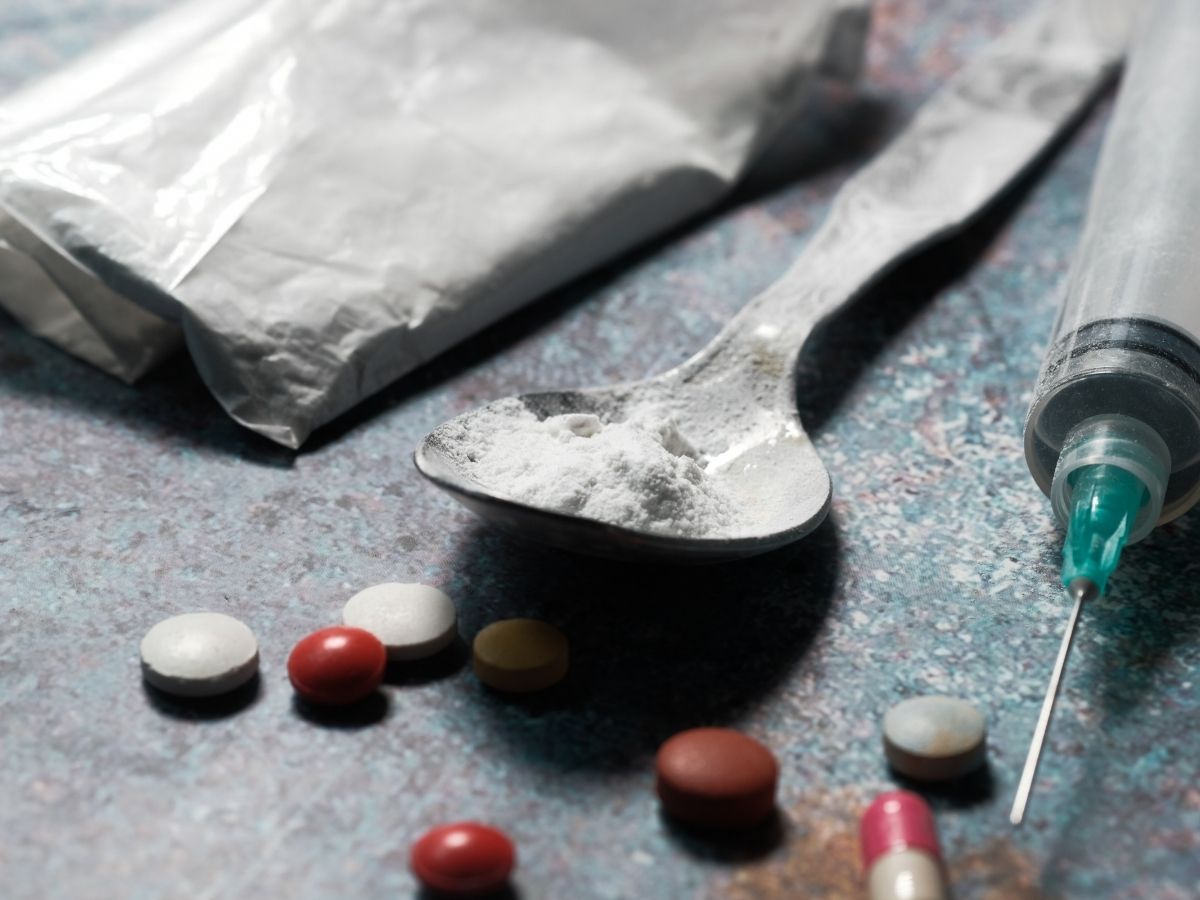
MDMA (Molly/Ecstasy) is a drug that changes your mood and perception. MDMA is used at parties, nightclubs, and music festivals. Many users believe it increases feelings of pleasure and connection.
But there is another side to the story, and it is that behind all the fun-filled reasons to spend time on it is a drug that can create destructive mental, physical, and emotional outcomes in the long run.
When a loved one or yourself is being overwhelmed by MDMA addiction, it is important to know the dangers, symptoms, and remedies for it. This guide will take you through the impact of Molly, how it leads to addiction, and how you or a loved one can seek MDMA treatment.
Skip To
Table of Contents
What is Molly?
MDMA (3,4-methylenedioxymethamphetamine) is an artificial drug that influences mood and perception. It resembles both stimulants (such as methamphetamine) and hallucinogens (such as mescaline) in chemical nature. MDMA-molly creates feelings that are intense, energetic, euphoric, emotionally satisfying, and altered perception.
Molly MDMA is presented as a substance or crystal powder, which is marketed as capsules. Although this form is sold as safer, the fact is that most of the Molly products in the market carry with them risks of using this drug in the form of harmful contaminants like methamphetamine or caffeine.
End the Emotional Pain. Get Your Life Back.
Feeling Depressed, Anxious or Struggling with Mental Health Illness? Get Safe Comfortable Mental Health Dual Diagnosis High-Quality Therapy From Counselors That Care. Begin Your Recovery Now.
Hotline: (509) 348-4077

MDMA vs. Molly: What is The Difference?
Even though MDMA and Molly may be easily interchanged, there is a difference between them. The substance is called MDMA in terms of the chemical name, but is commonly known as Molly, which is the crystalline and pure form of this drug. Yet, it is doubtful that most MDMA is pure, and most of what is sold under the name of Molly can be mixed with other dangerous drugs.
Another popular street name of MDMA is Ecstasy, which is usually sold in pills, and it may include even more harmful additives. Some MDMA or Molly, whether in tablet, powder, or liquid form, is very harmful at all times, moreso when it is bought off the street.

What is the Effect of MDMA on Your Body?
Molly affects the brain by enhancing the activity of three major neurotransmitters: dopamine, norepinephrine, and serotonin. These are some of the chemicals that make the drug stimulating and mood-enhancing.
- Dopamine elevates energy and activity, which strengthens drug-seeking behavior.
- Norepinephrine accelerates the heartbeat and elevates blood pressure; this situation is hazardous to those with heart disorders.
- Serotonin affects mood, appetite, and sleep, and induces a group of hormones affecting emotional proximity, trust, and sexual arousal. It is this release of serotonin that adds to the intense emotional feelings that come with taking Molly.
But the addiction to Molly may have some considerable adverse effects. Short and long-term use of Molly is capable of producing several side effects due to frequent or prolonged use.
Immediate MDMA Effects
When people initially use Molly, they experience:
- Euphoria and movement of energy
- Expressive feelings and compassion towards others
- Supernormal sensory perception (e.g., enhanced touch, sound, and sight)
- Deteriorated sense of time
Along with these feelings, there are also many uncomfortable and dangerous side effects such as:
- Increased blood pressure and high heart rate
- Feeling of sickness, muscle cramps, and clenching down of the teeth unwillingly
- Impairment of vision, perspiration, and coldness
- Overheating and dehydration, in particular, in a club environment or at a festival
- Poor appetite and sleep disturbances
Although these impacts usually last 3-6 hours, they may be prolonged if multiple doses are taken.
Get Help. Get Better. Get Your Life Back.
Searching for Accredited Dual Diagnosis Mental Health Centers Near You?
Even if therapy failed previously, or are in the middle of a difficult crisis, we stand ready to support you. Our trusted behavioral health specialists will not give up on you. When you feel ready or just want someone to speak to about counseling alternatives to change your life call us. Even if we cannot assist you, we will lead you to wherever you can get support. There is no obligation. Call our hotline today.
FREE 24/7 Dual Diagnosis Mental Health Services HotlineMDMA Long Term Impact
When taken on a consecutive basis or in large amounts, Molly may lead to long-term health problems, including:
- Cognitive deficits: Memory issues, concentration, and learning difficulties
- Mental health issues: Anxiety, depression, aggressive behavior, and increased emotions
- Disturbed sleep: The inability to sleep well even weeks after using it
- Increased heart rate and blood pressure, which can lead to heart disease
Many users also lose interest in sex and experiencing less sexual gratification. These issues remain even when the effect of using the drug wears off. This is the reason that MDMA treatment should also begin at an early stage, because habits that are continued for an extended period may cause severe, permanent damage.
How Long Does MDMA Stay in Your System?
The very duration of MDMA in your system can depend on some factors, including the dose, its frequency of use, and the ability to process it. How long MDMA lasts in the body depends on the type of drug testing.
- Urine testing: Molly is screened for urine through the provision of 3-5 days after consumption.
- Blood testing: Molly can be found in the blood for approximately 1 to 2 days.
- Saliva testing: Molly can be identified in the saliva up to 2 days later.
The high can last anywhere between 3 and 6 hours. However, in some cases, the effects of Molly may be felt several days after consumption, leading to cases of depression, anger, and insomnia.
MDMA Addiction Signs and Symptoms
The use of Molly can become habit-forming over time. Although it is possibly not as physically addictive as other drugs such as methamphetamine or heroin, MDMA is nonetheless addictive. The attributes of Molly addiction are, in part, some of the following:
- Cravings: A desire to keep on using Molly, MDMA, despite the harmful effects
- Tolerance: Increasing or needing high doses of the drug to achieve the same effects
- Withdrawal: Anxiety, depressed, or irritable mood during periods of the absence of MDMA
- Continuing use: Even when relationships, physical health, or finances are damaged
Is MDMA Addictive?
Research indicates that MDMA addiction is possible due to its effects on the brain areas that deal with pleasure and reward. Although MDMA may not be physically addictive like drugs such as heroin, the psychological dependence that it may form over time is equally destructive.
Those who take MDMA can build a tolerance to its effects and will need to increase doses to feel the same “high.” This can eventually lead to overdose and health problems.
Comfortable Facilities & Amenities
High-Quality Mental Health Services & Behaviroal Health Substance Abuse Treatment
Rehab Centers TourRenowned Mental Health Centers. Serene Private Facilities. Inpatient Rehab Programs Vary.
Mental Health Helpline: (509) 348-4077Proven recovery success experience, backed by a Team w/ History of:
15+
Years of Unified Experience
100s
5-Star Reviews Across Our Centers
10K
Recovery Success Stories Across Our Network
- Low Patient to Therapist Ratio
- Comprehensive Dual-Diagnosis Treatment
- Complimentary Family & Alumni Programs
- Coaching, Recovery & Development Events
- Comfortable Onsite Medical Detox Center
Dangers of Overdosing on Molly
MDMA can be deadly if taken in an overdose amount even though it is not common. The symptoms of an overdose include:
- Passing out and collapsing
- Severe dehydration and overheating (hyperthermia)
- Seizures, panic attacks
- Failure of the liver, kidneys, or the heart
To make the situation even more threatening, MDMA is mixed with other substances, like alcohol or marijuana, which also increases the risks of fatal outcomes.
MDMA Addiction Treatment
This addiction requires professional assistance in case you or someone close to you is facing the problem. MDMA does not have a dedicated drug yet that can be used to treat it, but there are viable therapies and treatment options that can be used to counter the condition.
- Cognitive Behavioral Therapy (CBT): This form of therapy helps individuals become aware of negative thinking and behavior that concerns drug use and change it. It is one of the best ways of treating substance abuse and ensures long term effectiveness.
- MDMA Assisted Therapy: Medical trials revealed the adequate performance of MDMA-assisted psychotherapy in the treatment of post-traumatic stress disorder (PTSD). Although it is still not widely accepted, this type of treatment has the potential to become an effective therapy in the future.
- Inpatient and Outpatient Programs: Patients who are severe addicts will need a detox and inpatient program to stabilize. They may also get help through outpatient programs after stabilization has taken place.
How to Get MDMA Treatment around Spokane Valley, WA
In Spokane Valley, WA, We Level Up Washington offers treatment to anyone or their loved ones looking for help. Our rehab center provides all levels of care, such as detox, therapy, and support groups, to enable you to take your life back from addiction.
Frequently Asked Questions (FAQs)
-
How long does MDMA stay in your system?
Typically, MDMA remains in your system about 3 to 5 days in urine, 1 to 2 days in blood, and 2 days in saliva. It has a longer detection time among drug users who have used it habitually or in large amounts.
-
Is MDMA addictive?
Yes, MDMA is addictive, mainly due to its impacts on the reward mechanism of the brain. Sooner or later, individuals might become addicted, manifesting cravings, tolerance, and withdrawal, which are typical indicators of addiction.
-
What is the location of the MDMA treatment in Spokane Valley?
We Level Up Washington offers MDMA treatment solutions to residents of Spokane Valley. We offer programs such as detoxification, therapy, and support to victims of substance abuse problems.
When struggling with MDMA addiction, you or someone around you should seek help. Contact We Level Up Washington today and receive a confidential consultation to begin your healing journey.
World-class, Accredited, 5-Star Reviewed, Effective Mental Health Dual Diagnosis Programs. Complete Integrated Inpatient Rehab with Free Post Discharge Therapy Planning.
Hotline: (509) 348-4077End the Emotional Pain Rollercoaster. Gain Stability & Happiness Through Recovery Treatment. Start Mental Health Counseling Today. Get Free No-obligation Guidance by Behaviroal Health Specialists Who Understand Mental Health Recovery.
Summary
Call today to speak with our team and learn more about our programs. We Level Up Washington: (509) 348-4077. Your next step starts here.





